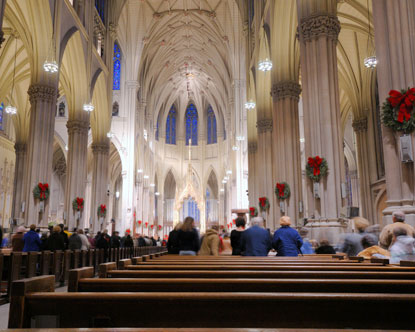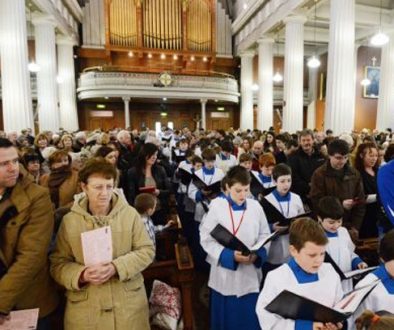The Present State of Christianity in Ireland

Over two decades ago, almost 80 percent of the Irish people were attending Catholic Mass every week. Fast forward to today, it is disappointing to note that less than the half of that number now attend weekly mass. Researchers have attributed this to the fact that secularization has had a huge impact on the number of people who attend mass and other church services. This decline has been taken as an advantage by evangelicals, who have been dubbed foreign preachers by the Irish people. As a matter of fact, the growth of the church post Catholicism can be attributed to foreigners – though most of them are not from the country. The steadily growing economy of Ireland has attracted a significant number of immigrants from Nigeria and China. Currently, about 30 percent of the evangelical preachers are from foreign countries. Most of the churches in Ireland have adopted the tradition of having power point slides to help in the translation of bible verses into a number of languages for ease of communication and to reach as many people as possible.
The Evangelical Alliance of Ireland published a report in 2006. This detailed the number of evangelicals from 1980 to 2006 when they reached 30,000. Be that as it may, the number of evangelicals is still too small when compared to the population of the Irish people. Most churches that follow the evangelical faith were started within the last 25 years or so. And over half of them do not pledge allegiance to any denomination.

The growth of the church in Ireland can also be attributed to the Irish Bible Institute (IBI). IBI is said to be the first evangelical bible college since Trinity College was overtaken by the Puritans in 1630.
Many former and current IBI teachers, faculty, and students are engaged in the planting of churches of different denominations across the globe. Most of the people involved in these church planting are missionaries from Northern Ireland and the United States.
[Source: The Irish Bible Institute (IBI)]
For a number of years, evangelicals did not live up to their expectation of penetrating to every corner in Ireland. Their efforts to at least gain some ground in the country were thwarted by the presence of a strong Catholic Church. The national identity of Ireland was threatened further by the presence of Protestantism. Ireland’s constitution recognized Roman Catholic in a special manner. And most of the Irish bishops viewed evangelical churches as cults.
However, the reversal in popularity of the Catholic Church in the 1970s dealt a major blow to the Catholics. The evangelicals have since been on the rise because a large number of the Catholic faithful have joined the evangelical alliance. Moreover, the Catholic Church in Ireland was tainted further by grave accusations of sexual abuse where respected priests were involved. As the moral authority of the Catholic Church declined, the Irish people became less tolerant of Catholicism and embraced other religions. In general, they do not want to be seen as demonizing the churches where they had not heard or seen any evil in practice.



